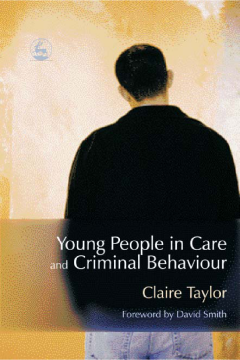
Additional Information
Book Details
Abstract
Society holds a popular perception that links children in public care with criminal activity, but this connection is largely assumed. This book addresses the lack of evidence supporting this potentially damaging assumption.
It begins by analysing past research, critically examining current policy and combining theoretical insights from the disciplines of childcare and criminology in order to form a theoretical framework for research. The empirical evidence of thirty-nine interviews with young people who have been through the care system is then drawn upon to highlight key findings and conclusions about the relationship between care and crime, and the implications towards current policy. Addressing issues such as:
the residential care experience
developing secure attachments in the context of care
experiences of education
life after care,
these powerful examples show the flaws, failures and successes of the various childcare services by offering insight into the reality of young peoples experiences.
This book is highly relevant to new legislation and the current political agenda, and will prove an eye-opening read for policymakers and practitioners in the fields of child care and criminology, social workers, and students of social work, social policy and criminology.
A thoughtful book, written by a former 'looked after' teenager, offers to magistrates, practitioners and policy-makers alike new insights into the lives of children in care.
Magistrate Magazine
On the overall excellence of the book I hope there will be little disagreement. I would urge everyone with an interest in the care system to read it.
Youth Justice, Vol.6, No.2, April 2007
The author's unique take on her research subject is that she is herself a product of the care system. She is passionate about giving a voice to young people who have experienced various kinds of care, so that professionals might learn from them.
CAFCASS
What makes Taylor's book important- and her argument particularly relevant to social care policy and practise- is her illustration of the processes by which children in care come to feel uncared for, detached and disrespected. It is the absence of secure, stable and loving relationships, combined with low expectations, that undermines their ability to develop secure attachments to anything or anyone positive. A key challenge arising from Taylor's findings is how to facilitate these kinds of positive attachments amongst looked- after children, given the ongoing crisis in recruiting and retaining quality foster carers and social care professionals.
The Howard Journal
[The book] demonstrates a real sense of commitment to providing its readership with a product that matches the standard of its contents. As such, it is both accessible to students and rewards attention by more specialist readers in its field. Its conclusions deserve to be taken seriously by anyone with an interest in the welfare of the vulnerable children and young people who find themselves relying on the state for their start in life.
Punishment and Society
Written in a clear and refreshing style…this book must be essential reading.
Children Now
Claire Taylor is currently working in the area of crime reduction. She has previously worked at the universities of Nottingham and Lancaster. This book is based upon her doctoral research undertaken at Lancaster University.
